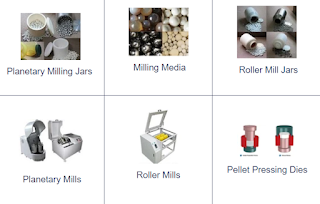What is High Energy Ball Mill – Understand its Working Principle and Advantages
When you might think about milling machines, you may imagine a vertical machine that carries rotary cutters. Traditional milling machines were used to reshape components and turn them into useful products. However, there are many other kinds of milling machines available, one of them is a ball mill.
This machine is comprised
of a hallow cylinder containing balls, mounted on a metallic frame that can
rotate along. It can occupy 30-50% of the mill volume and its size may vary
depending on feed and mill size. The large balls are likely to break down the
feed materials whereas small balls form fine products by eliminating void
between the objects.
The degree of the milling process in a high energy ball mill is influenced by the following aspects:
- The residence time of materials in the mill chamber
- The size, density, and number of balls
- The actual nature of the balls, such as the toughness of grinding material
- Feed rate and feed level in the vessel
- Rotation speed level in the cylinder
Many other types of ball mills are available that differ in operating principle. It also affects the maximum capacity of the milling vessel, from 0.010 lt. for planetary ball mills or vibration ball mills to 100 lt. for horizontal rolling ball mills.
Introduction to Ball Mill
Ball mill is a type of
grinding machine used to grind various materials like pigments, coal, and
feldspar for pottery. The grinding procedure can be carried out either wet or
dry, but it is performed at a low level of speed.
Working Principle
A ball mill works by using
balls to grind plenty of materials like iron ore and ceramics. Further, the
ball mill gets activated so that it can rotate either vertical or horizontal
axis. As it rotates, the ball bounces around while hitting the enclosed
material. The force of strikes allows materials to grind into the uniform, fine
and less-coarse medium. To gain superior results, critical speed should be
taken care of.
Benefits:
- Produce the finest powder – particle size less than or equal to 10 microns
- Ideal for milling toxic materials – used in the completely enclosed form
- Useful for various purposes
- Used for continuous operation
- Used for milling highly abrasive materials
You can find a ball mill
for sale to support materials like ceramics, ore, and paint in various
industries. A small and average capacity machine can be used for the final
grinding of drugs or grinding suspensions. Maximum capacity ball mills, on the
other hand, can be used for milling ores and other materials.



Comments
Post a Comment